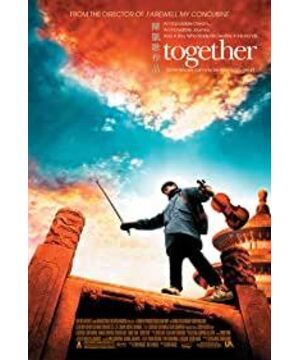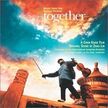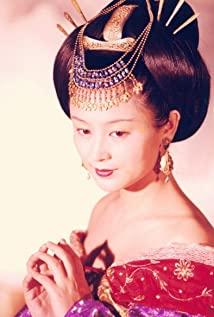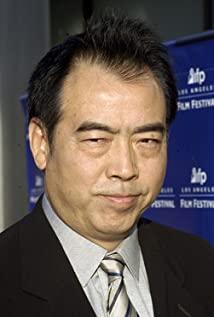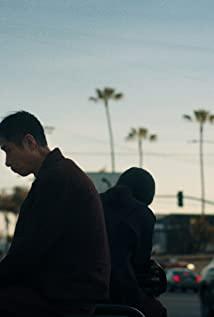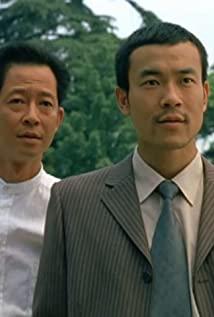- look "Together"
Director: Chen Kaige
Starring: Before Chen Cheng Wang Zhiwen
Release Year: 2002
Movie Name: with you
Language: Chinese
producer countries / regions: China
imdb No.: tt0332639
Also known as: Together
Last night, I was embarrassed to review Chen Kaige's "Together with You" again, and the human emotions are directly connected to people's hearts. In this film, Director Chen has organically combined music with the scenes of mundane life several times. The combination of each other creates a harmonious beauty. Music shows its intrinsic nobility in this film. It is not divorced from life, and it comes from the poor but not humble lower life. Like the protagonist Liu Xiaochun, it grows and worries, but finally wins with love.
There is a dialogue in the play, which is very interesting. Professor Yu, played by Chen Kaige, said to his student Lin Yu:
"Everything is right, but it's not good. There is no emotion in music, just like a gun without bullets, how can you hit others and conquer without bullets? Others? The only thing in the world that can’t be given is love!”
Excerpted from my notebook, Professor Zhang Ming from Zhejiang Academy of Arts gave this passage last time, and I wrote it down. He also talked about how Li Chuanyun got the first violin of the American Symphony Orchestra with hard work. He once said that to test a violinist's real skills, let him play a piece of Bazzini's "Dance of the Goblin." I have listened to this piece, and Perlman has played it before. The sound is full of emotion, the perfect combination of strings and soul, and the skills of pulling, plucking, jumping, and sliding are fast and precise.
In the film, Li Chuanyun made a cameo appearance as musician Tang Rong and appeared on camera with a humble attitude. The bitterness and diligence behind the musicians can be seen in Professor Yu's few words. In fact, behind the vast majority of successful musicians is a nearly distorted history of "perverted" humiliation and struggle. Friends who have watched another Australian film "Shining Style" must not forget that the protagonist performed on stage when he was a teenager. In order to win the award, he was forced by his father to play Rachmaninoff's "Piano Concerto No. , and finally schizophrenia. Are piano-learning children suffering? It's probably also a joy in bitterness. When they walk in and out of the streets with their piano cases on their backs, it is a symbol of superior status. In China, people always pay attention to identity and ignore substance. In the film, Director Chen hits the nail on the head: music is not about high or low, it is only about people's emotions!
Not to mention the arduous process of Liu Xiaochun following his father from the small town to Beijing to learn arts, from the perspective of the society reflected by him, although everyone has a disparity in status, the light reflected on them is all Emotional. For example, Lily, played by Chen Hong, has a low status and even arouses some disgust with her profession, but her feelings for Liu Xiaochun are sincere, just like the friendship between her sister and her younger brother, especially the wrapping on her body. The fragility revealed by his colorful brilliance after being destroyed by such a pure love is the externalization of his deep inner emotions. She asked Liu Xiaochun to play the qin at first as a decoration for the atmosphere of her personal life, but after she understood his life and the kind of emotional support he had for her like a mother, her attitude towards music was "reverence". In a sense, Liu Xiaochun has taught her to purify and transform her mind; another example is Liu Xiaochun's first teacher, Teacher Jiang played by Wang Zhiwen, who seems to be a scruffy and poor intellectual on the surface. The love affair of a female classmate in the period is still buried deep in his heart, and he was worthy of courting her at that time. The last few words he said to Liu Xiaochun were: I can teach you to learn the piano, but I cannot guarantee your success. Although he was unwilling to learn the piano from Liu Xiaochun's father, Liu Chengyi, he had to be ashamed of himself and could not delay his future because he couldn't let go of his feelings for the child. It shows that he is a man of conscience.
Among the actors, I like Liu Xiaochun played by Tang Yun very much. As far as I know, he has the same experience as the protagonist since he was a child. Now he is under the tutelage of Chen Mei's teacher, Lin Yaoji, and has made great strides towards a broader artistic field. It's no wonder that the verve of his playing the piano in the film is so realistic. It turned out to be true. Although Chen Kaige didn't have too many demands on his acting skills, he still felt that his innocent performance was closer to reality. Liu Peiqi is my favorite among mainland actors. His performances combine simplicity and sincerity, and he often interprets ordinary characters in life to life.
Apart from the performances of the actors, the storyline alone does not seem to have any special features, and it is even a bit old-fashioned. The layout of this kind of plot is a bit to please the audience. Chinese audiences are most fond of sensationalism. In the 1980s, it always revolved around themes such as "abandoned babies" and "educated youth". Now sensationalism has changed its direction, not only in TV dramas and movies, but also in "draft". touch the living reality. At the end of the film, that "secret" was finally revealed. Liu Xiaochun was an abandoned baby, and was picked up by Liu Cheng at the station. Because there was a violin beside him, he had been taught to learn the violin since he was a child. wish. Director Chen's expression is remarkable. He splices this passage in a time-space interlacing technique. Reality uses full color, while memory uses light color, and the two are organically integrated. At this moment, the third movement of Lao Chai's violin concerto in D major rang loudly. Originally, the third movement was cheerful and lively, with a very Russian Trebak style, showing the local people's festival celebrations, but here it just reflects Liu Xiaochun's gushing gratitude to Liu Cheng. Thirteen years ago, the scene of Liu Cheng shouting around holding the infant Liu Xiaochun at the station was immersed in a low and beautiful melody, and when Liu Xiaochun found his father who was about to leave the station in a hurry to play this song for him, Director Chen The two scenes are perfectly combined. One is the grand momentum of the competition scene, and the other is a solo performance immersed in a deep parting feeling in the station. It is like a contrast, and it is a contrast. Only those who understand emotions can completely occupy the audience. heart of. Director Chen's intelligence is precisely because he combines the stage with life and reality, which makes classical music less rigid and rigid, and becomes a real popular art. He reflected the art strongly through the lens, like wielding a giant hammer in the hearts of the audience. When the music ended, the lens suddenly darkened, paused for three seconds and then slowly lit up. This process made the whole exciting scene There was a small pause in the mood, as if the whole film took a breath, and the audience temporarily relieved their feelings like a drain.
Any film that really knows how to mobilize the audience's emotions, and a film that has done a lot of hard work, is a good film, because it is a piano in itself, shaking the soul and temperament of art, or a gun full of bullets. Conquer you, or me.
August 11
View more about He ni zai yi qi reviews


